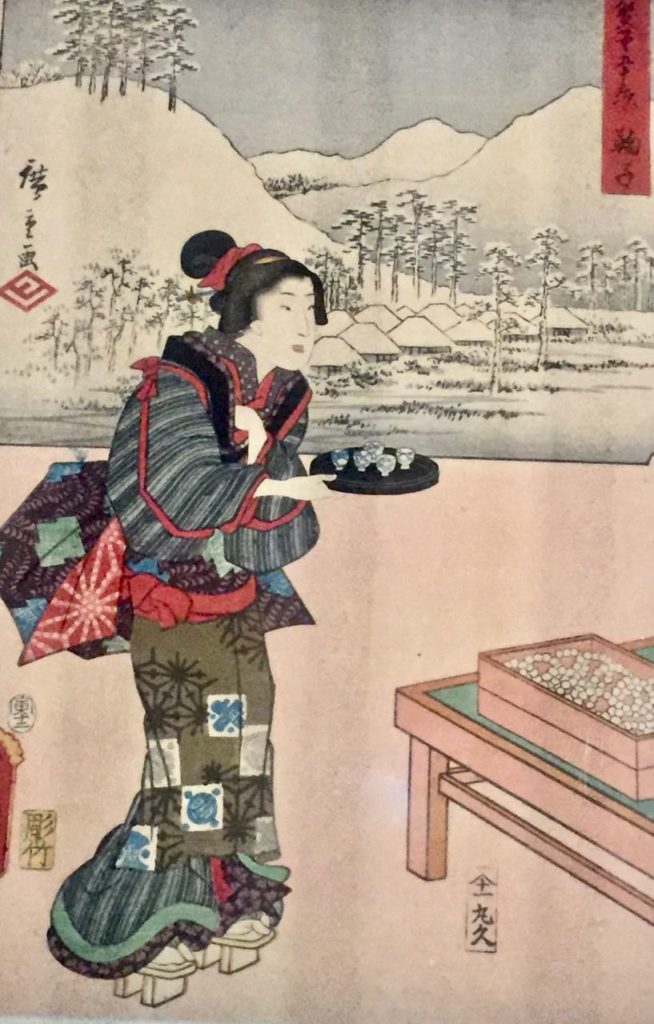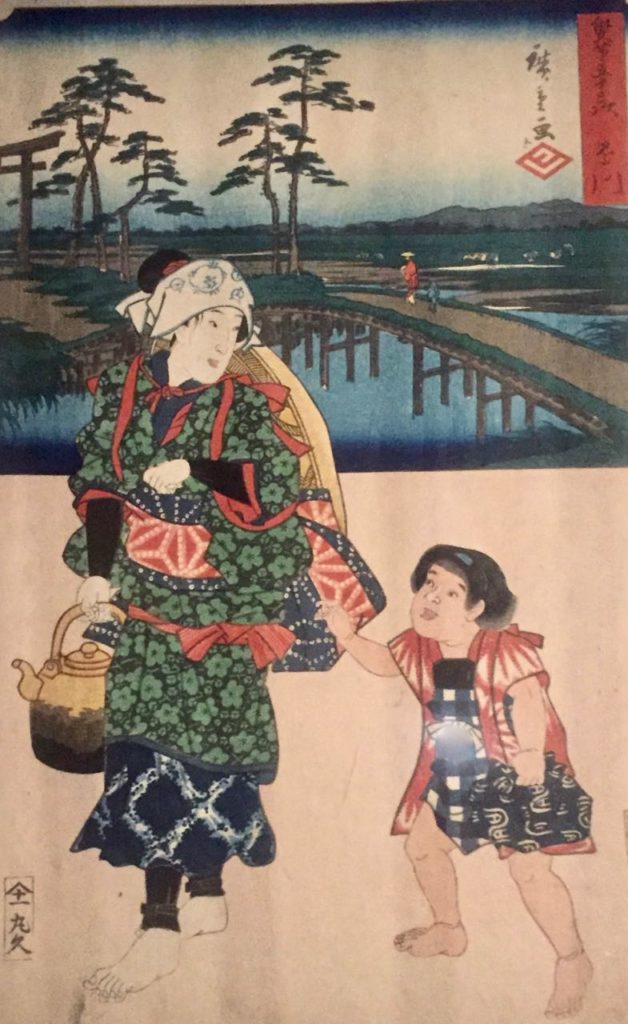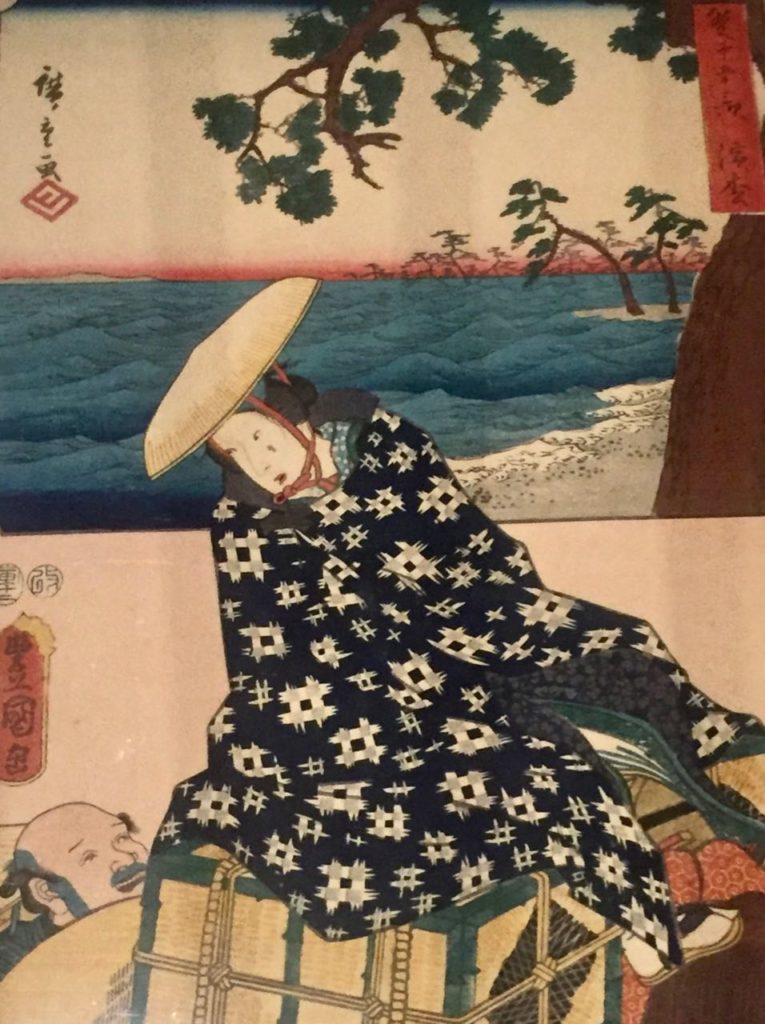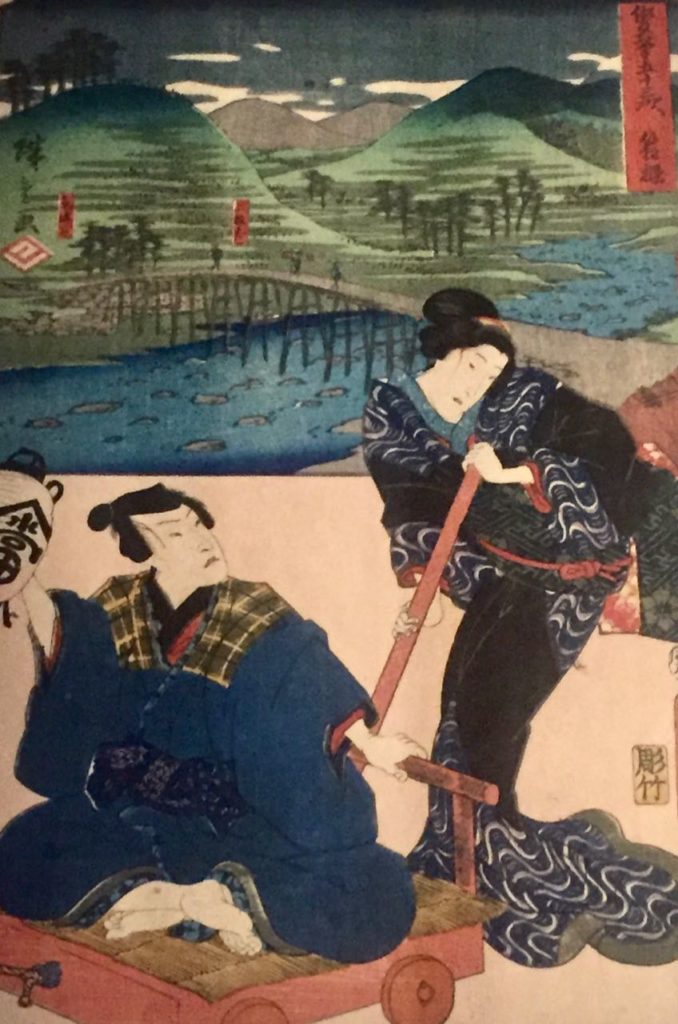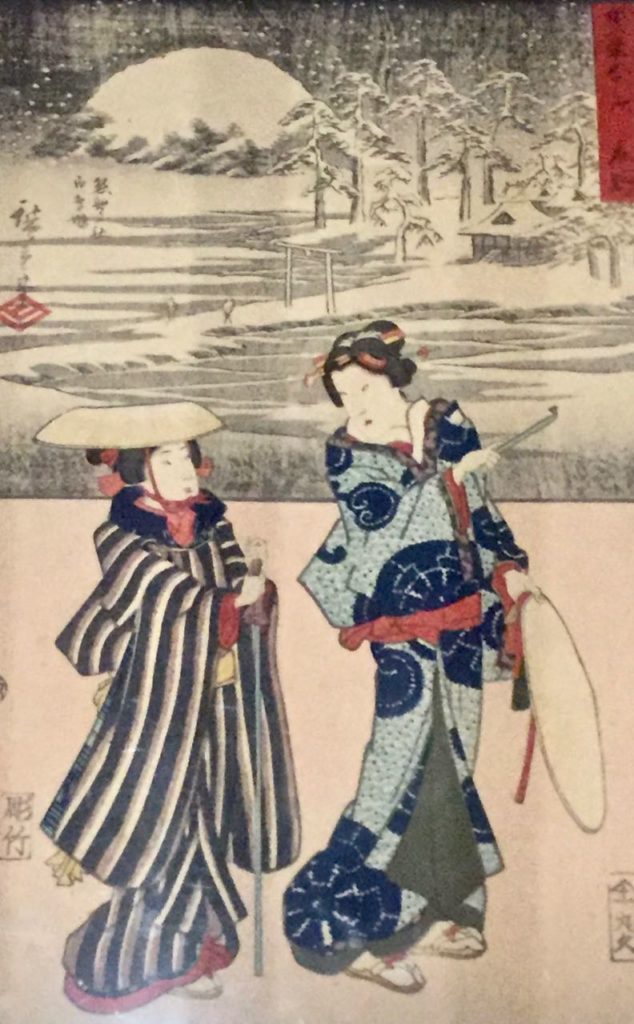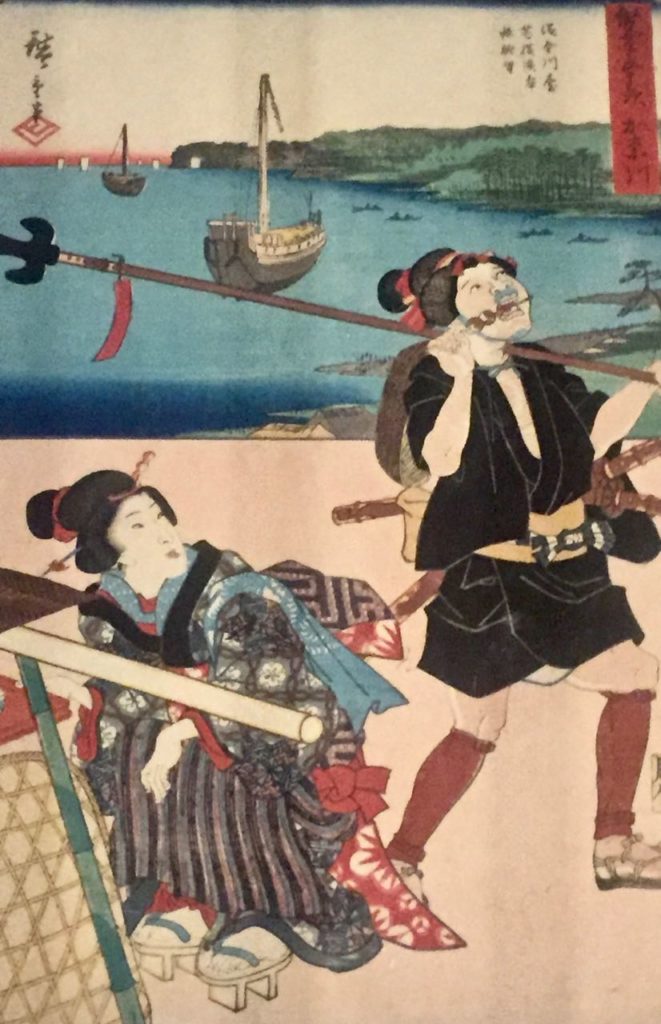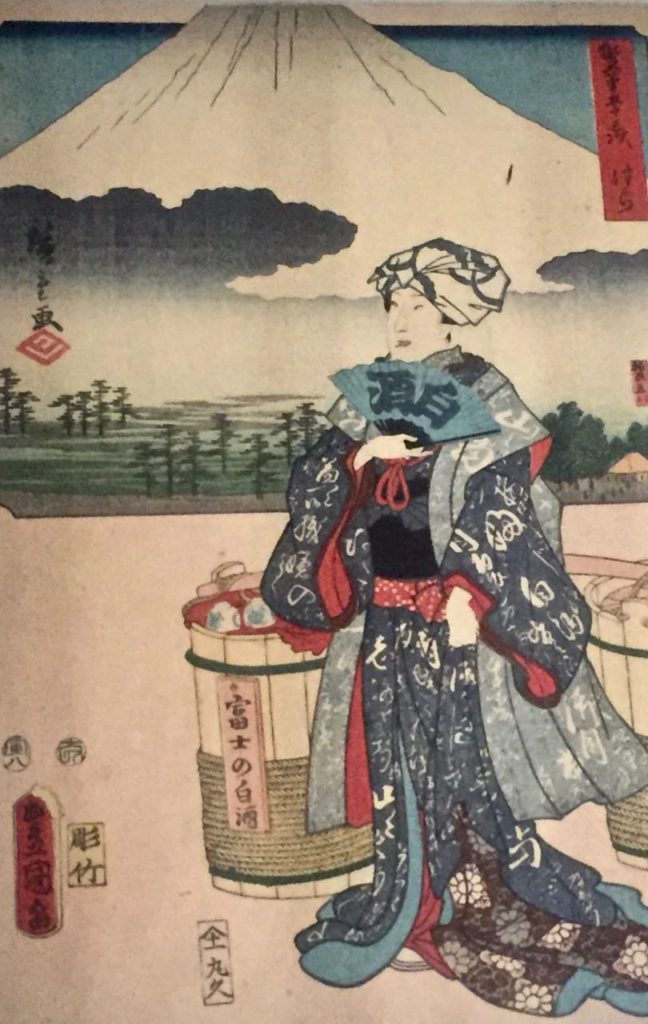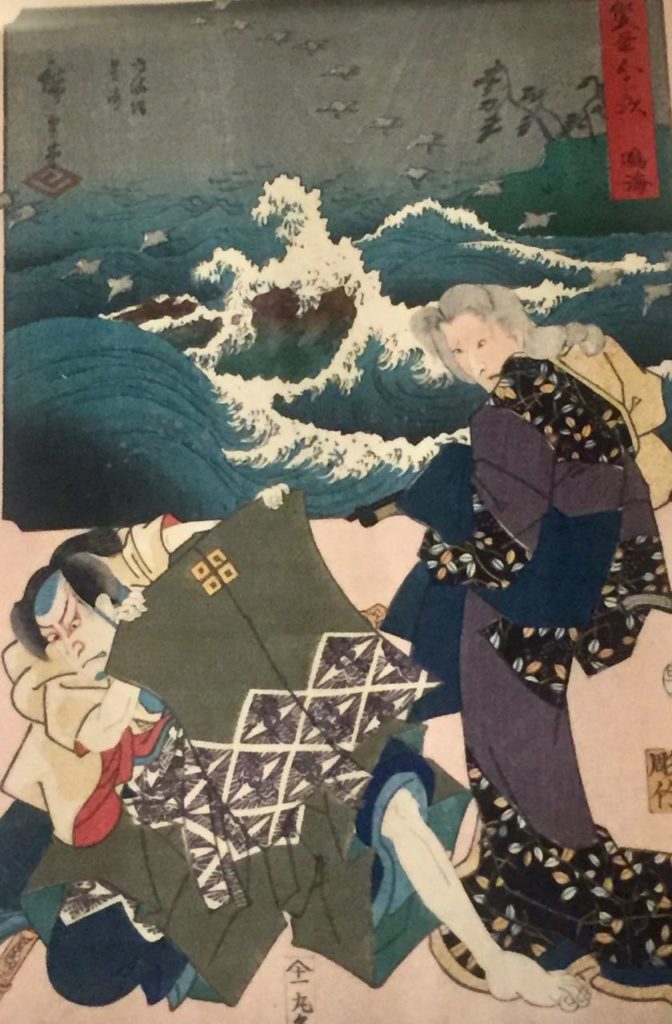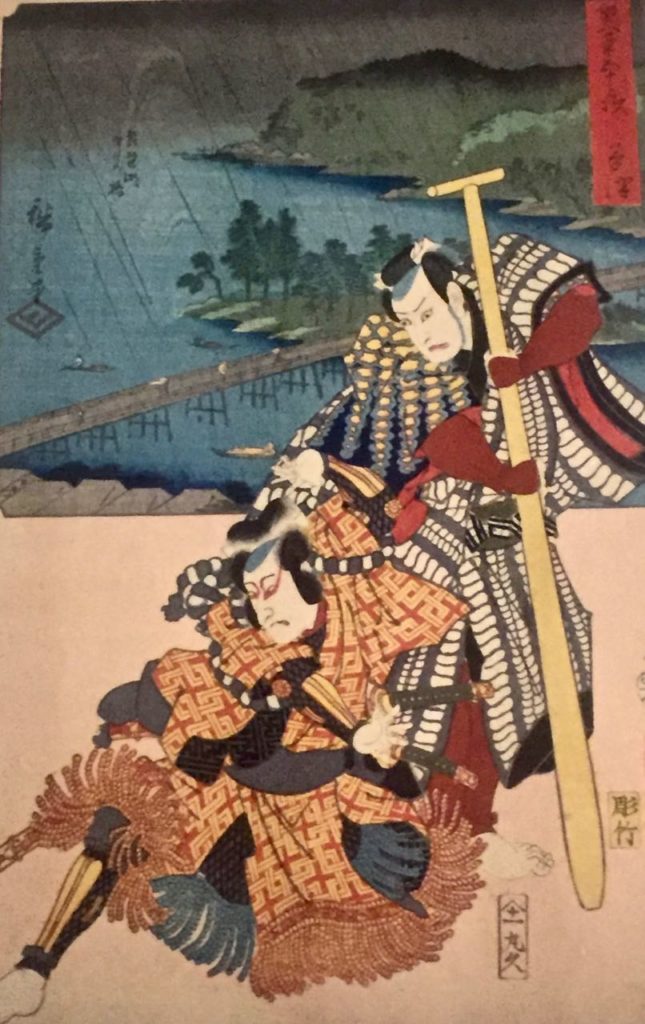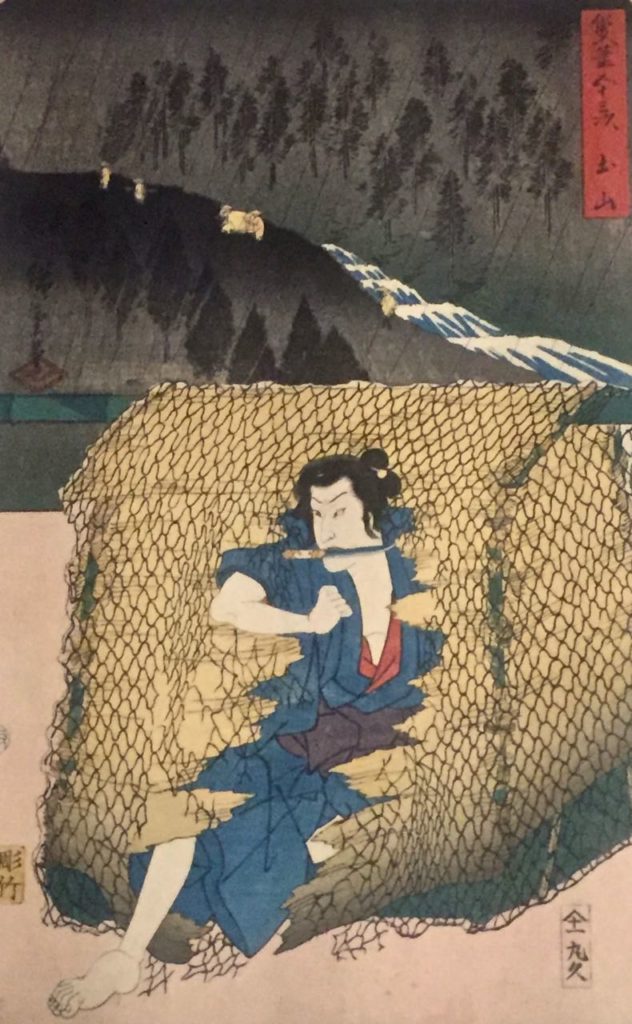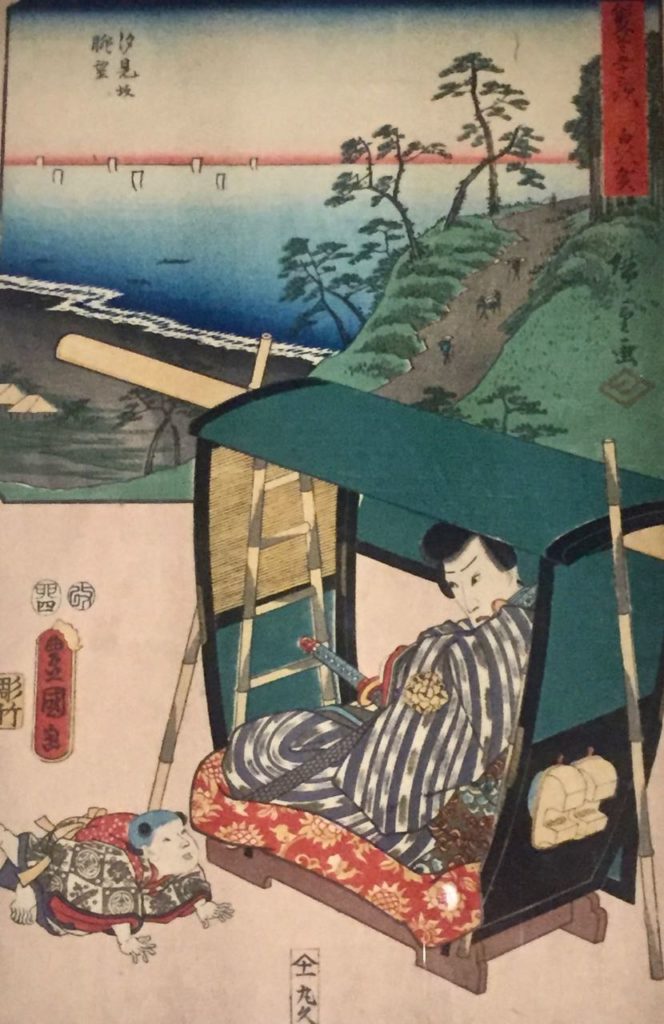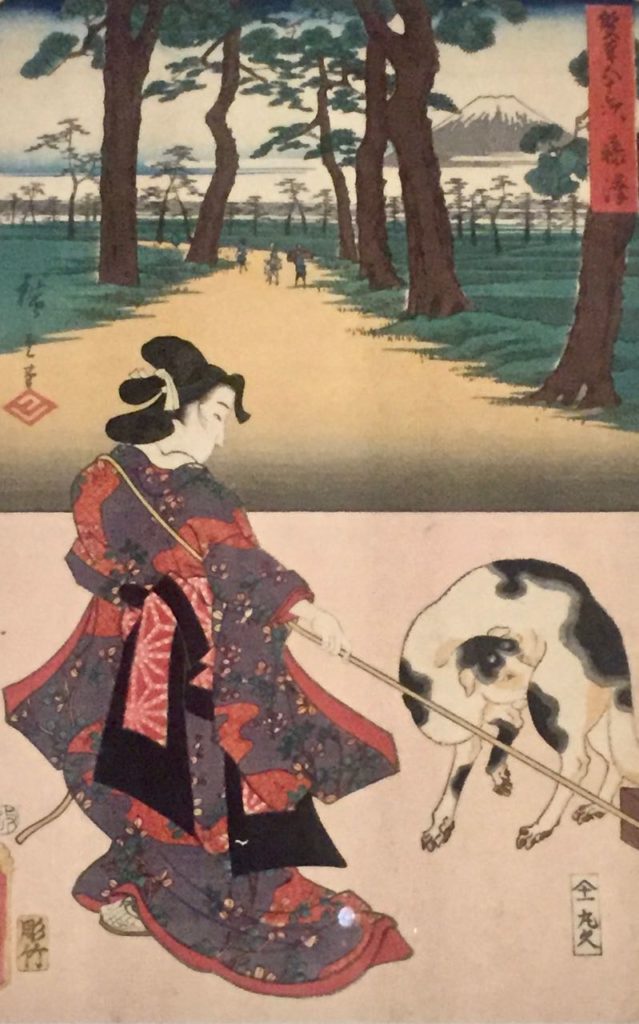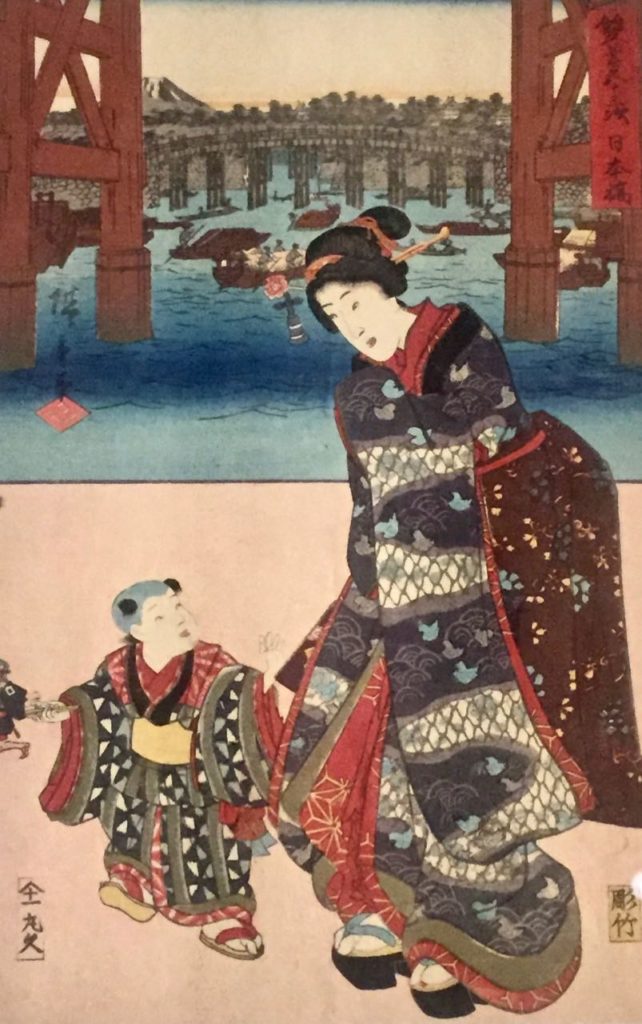It seems as I haven’ really come back from Japan… keep looking for indigo everywhere!
On a busy day in paris, I managed to stop at the Musee Guimet to catch an exhibition showcasing a flurry of etchings from the famed Tokaido route. The Tokaido is the east and most famous of the Gokaido routes. It started to develop from the Kamakura (1185-1333) period, but reached a peak during the Edo (1603-1868) period. We have heard about it many times during our Japanese workshops as it widely participated to the flourishing indigo economy on that part of the island.
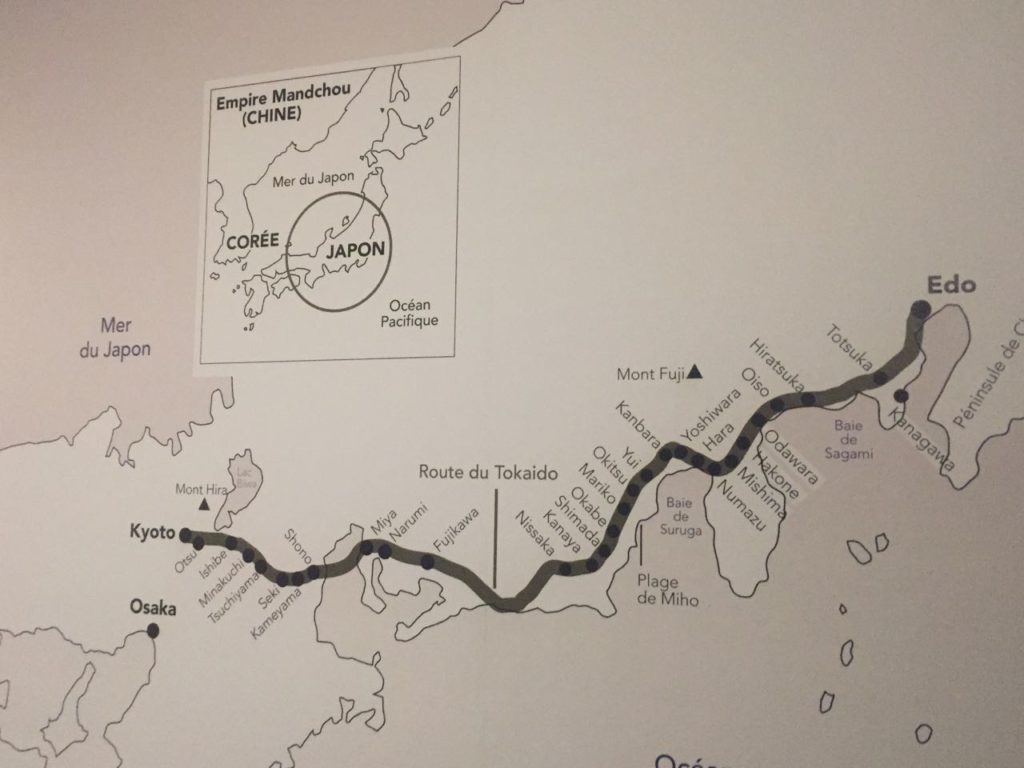
Indigo is indeed very present in the etchings, in the landscapes but also on the clothes which are a fascinating sight if you have the slightest interest in indigo reserve techniques!
The following etchings are all from Utagawa Hiroshige (1797-1858), Edo period.
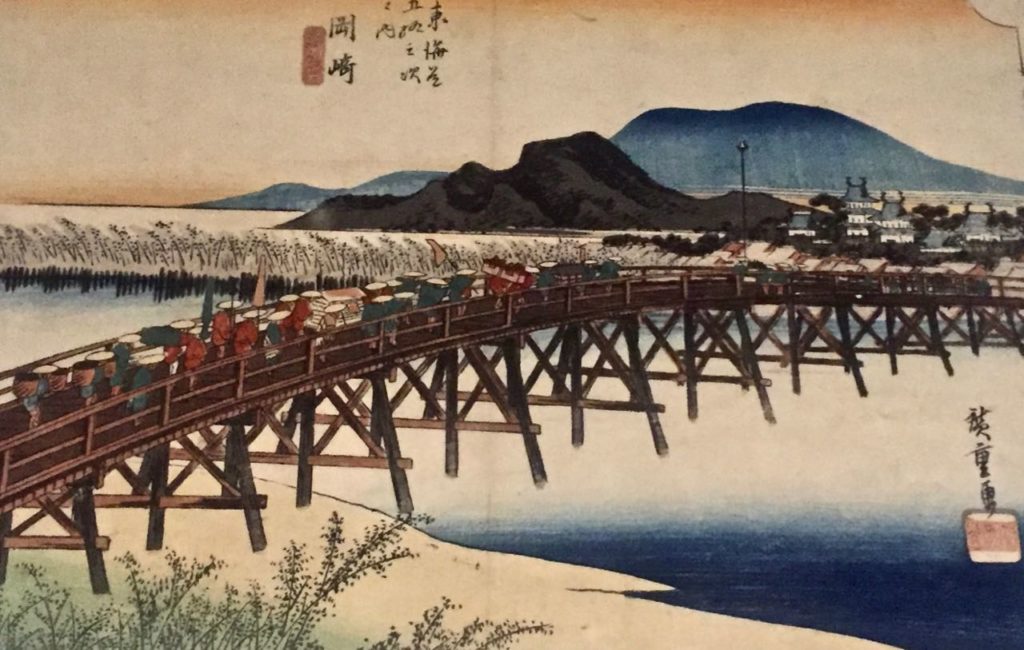
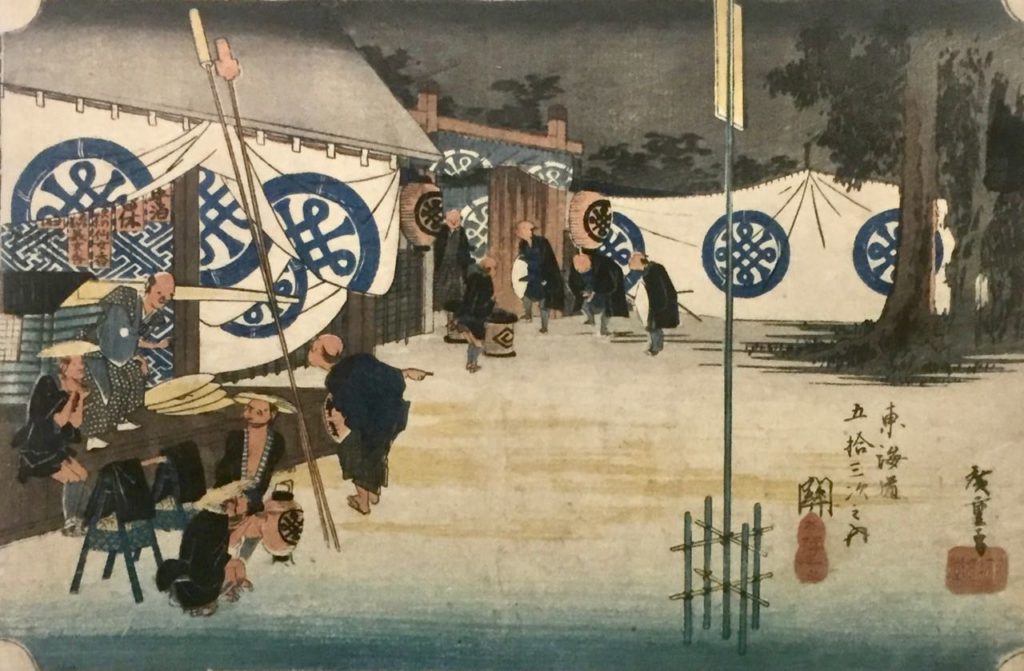
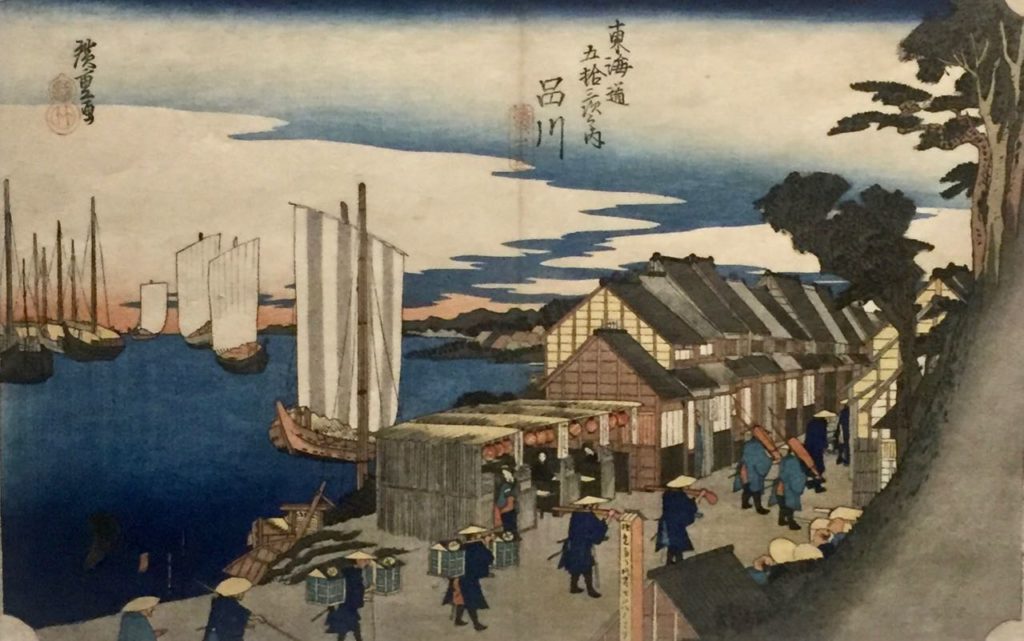
This portrait series is also from Utagawa Hiroshige (1797-1858), Edo period.
